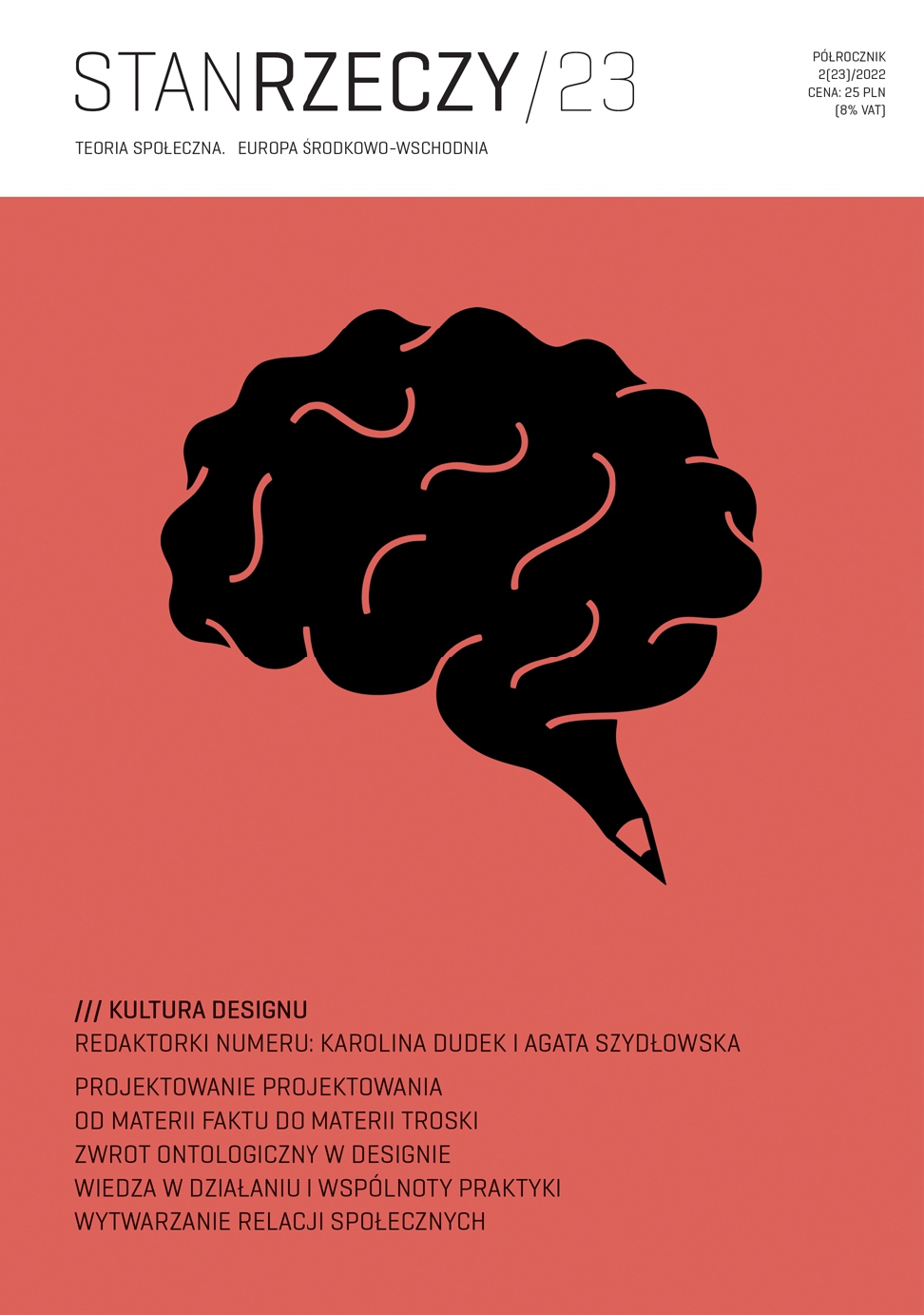Ontologiczny design - krytyczne zaangażowanie na rzecz radykalnie zrównoważonej przyszłości
Ontological Design: A Critical Commitment to a Radically Sustainable Future
Author(s): Jakub BarszczewskiSubject(s): Social Sciences, Fine Arts / Performing Arts, Visual Arts, Sociology, Sociology of Culture, Sociology of the arts, business, education
Published by: Wydział Socjologii Uniwersytetu Warszawskiego
Keywords: design; actor-network theory; emancipation; alterglobalism; anthropocen; Global South
Summary/Abstract: Contemporary reflection on design postulates a radical change in thinking in this regard. In addition to a more conventional critique of the entanglement of design in the logic of profit and the legitimacy of the capitalist organisation of social life, attention is also drawn to the limitations that result from the fact that this activity is rooted in Eurocentric and Cartesian ontology. In analogy to the contemporary debate in the social sciences on the agency of “invisible actors” (including non-human actors, nature, and space), the design theorists described in this text (Anne-Marie Willis, Ezio Manzini, Tony Fry, Cameron Tonkinwise, Madina Tlostanova) look for a different perspective from which to examine the relationship between designers and the worlds they create. Increasingly, emphasis is being placed on the fact that the practice of designing is not just an individual act of creation but can also be interpreted in terms of a distributed agency whose effects have a feedback impact on people and thus produce a basis for innovative social practices. Ecological and postcolonial criticism of design points to the need to adopt an anti-dualistic, anti-anthropocentric, and relationalist approach to reality, as this would allow for an emancipatory reformulation of the existing relationship between the individual, nature, and the community. This type of reflection on design is also an attempt to reinterpret the problem of innovation and development. Thus, design becomes a critical and utopian endeavour to invent a new way of organising society and its relation to non-human actors.
Journal: Stan Rzeczy
- Issue Year: 2022
- Issue No: 23
- Page Range: 41-65
- Page Count: 25
- Language: Polish

